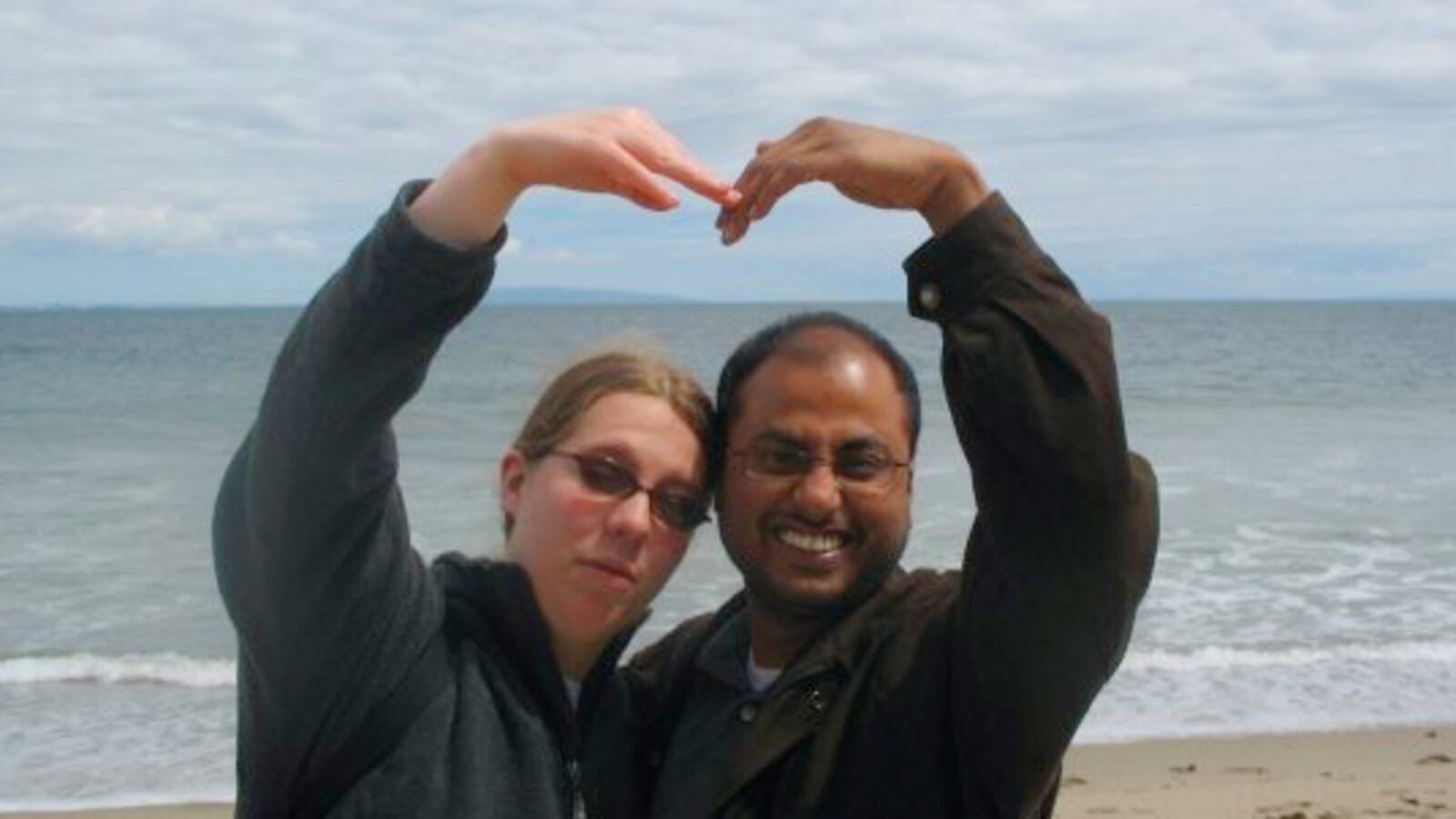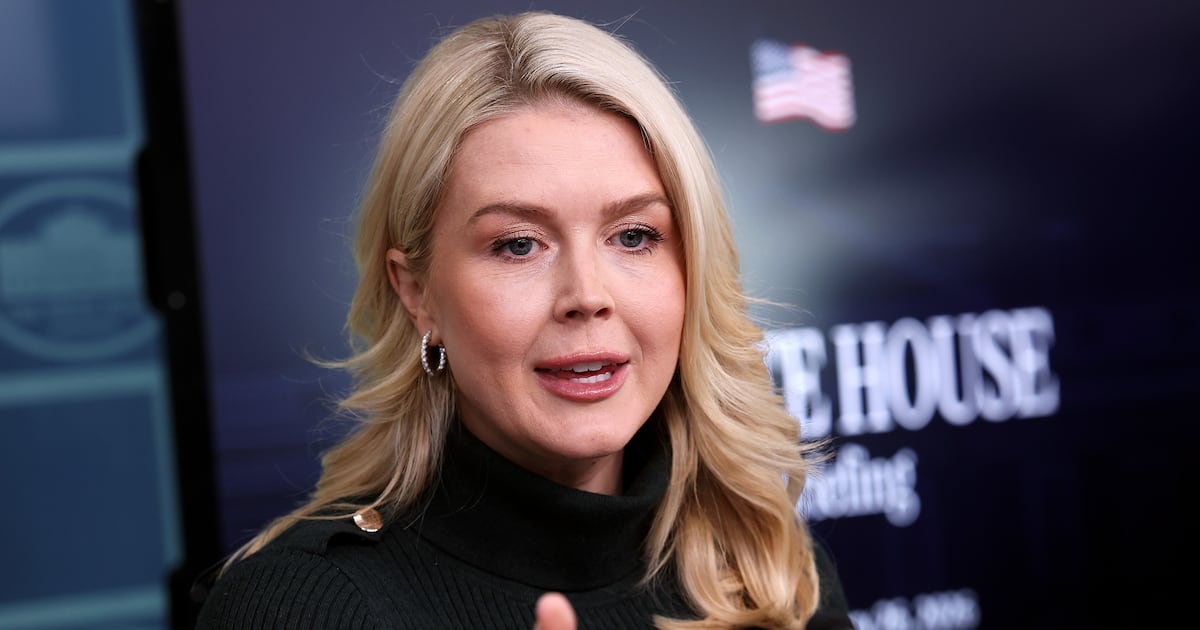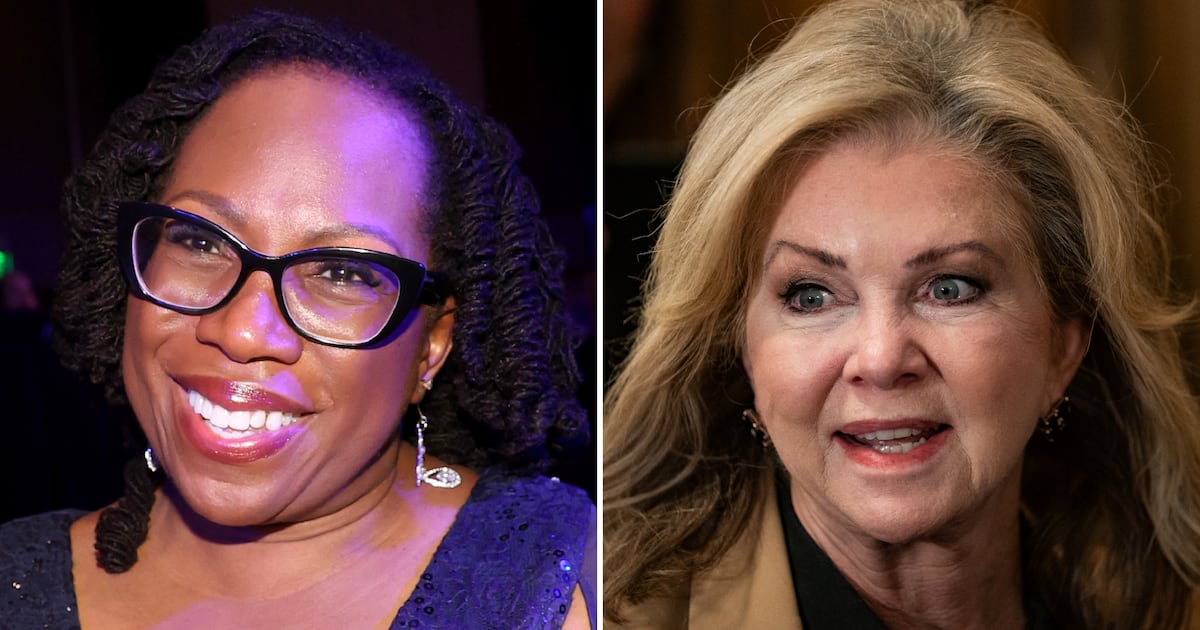Before Mainak Sarkar killed William Klug, they worked together to save lives.
Sarkar was a Ph.D. student at the University of California, Los Angeles and worked under Klug, a professor of mechanical and aerospace engineering, to build a virtual model of the human heart. The goal was simple as it was lofty: solve why hearts suddenly die. They likely discussed their work inside the small office in Engineering Building 4 where two more hearts died when Sarkar killed Klug and then himself on Wednesday.
Even in death, Klug’s work has the potential to save untold lives.
“Sudden cardiac death kills 300,000 people a year in the Unites States,” Alan Garfinkel, a UCLA biology and physiology professor who worked with Klug and Sarkar, told The Daily Beast on Thursday.
Klug led the project to create a computer model of the human heart that includes a staggering 50 million variables.
“It’s much more complicated than the most complicated video game, in terms of complexity and computation,” Garfinkel said of the virtual heart.
Klug was Sarkar’s dissertation adviser, while Garfinkel and three others served on Sarkar’s dissertation committee. One of them might have even been Sarkar’s other target.
Charlie Beck, chief of the Los Angeles Police Department, said Thursday that Sarkar left a “kill list” at his home in St. Paul, Minnesota, with Klug’s name and that of another UCLA professor. (It’s believed Sarkar couldn’t find him or her.) The last name on the list was Sarkar’s first victim, his estranged wife, Ashley Hasti.
Hasti was found shot dead in her home in Brooklyn Park, Minnesota. Police tape had just been removed from the home on Thursday morning. Protecting the split-level house instead were drawn blinds and makeshift coverings on the windows.
What made the murders most surprising for Garfinkel was that Sarkar was “three years out of UCLA, with a Ph.D. and a professional job.” Sarkar was a good student and the committee approved his dissertation, Garfinkel said, dismissing earlier reports that the killer was disgruntled over bad grades.
“He got a Ph.D. from UCLA,” he said. “You don’t flunk your way through that.”
In online postings uncovered after the murder, Sarkar railed against his one-time mentor and accused him of stealing his code. The post was deleted but retained in a cached version.
“William Klug, UCLA professor is not the kind of person when you think of a professor,” Sarkar wrote. “He is a very sick person. I urge every new student coming to UCLA to stay away from this guy.”
Sarkar felt Klug had wronged him.

“He cleverly stole all my code and gave it another student,” he rambled. “He made me really sick.”
But all the code for the virtual heart was pooled into one project that as many as 12 people worked on, Garfinkel said. What’s more, the code didn’t belong to Sarkar or Klug.
“Mainak worked on a big project and the code, all code… it all belongs to UCLA,” he said. “UCLA finances your research, as they did his, and UCLA owns that code.”
Garfinkel said Klug was a “very smart guy who was willing to take a pittance of a salary to work on this research.”
Klug, 39, graduated from a master’s program at UCLA and got his Ph.D. at the California Institute of Technology in just four years. Klug got tenure and did “brilliant work,” according to Garfinkel.
The brilliant professor was also a husband and father of two, who coached his son’s Little League team in his spare time. The team gathered for the first game without its coach hours after he was murdered on Wednesday, while family friends agonized over how to help the family.
“He was young in years, and he was very boyish, very enthusiastic. Just a sweet, sweet man,” Garfinkel said.
The professor was also a devout Christian and had gotten his B.A. from the religious Westmont College in Santa Barbara. The school’s alumni magazine profiled him and his work on “explaining how viruses inject DNA into cells.” He told the magazine that attending Westmont helped him grow into his faith on his own terms.
“I intend to keep reevaluating my faith and to maintain a list of reasons for what I believe,” Klug said at the time. “I refuse to be afraid to evaluate new evidence.”
Garfinkel, who is not religious, said students loved his debates with Klug over religious and ethical issues.
“He was very un-haughty about [being religious],” Garfinkel said. “He was just sweet-natured and gentle, and he argued persuasively, but he was very tolerant.”
That same attitude made Klug much beloved by students, and a good mentor. In his dissertation acknowledgments, even Sarkar, his killer, thanked Klug “for all his help and support.”
“Thank you for being my mentor,” he wrote.
A former co-worker of Sarkar’s said he was motivated to earn his Ph.D. but not to get rich.
“He told me, ‘I am more interested in the research than in earning money,’” Pankaj Kumar told The Daily Beast on Thursday.
Kumar and Sarkar worked together at a bank in Minneapolis in 2009 before Sarkar returned to school to get his doctorate. Even then his skill as a programmer was evident.
“He was quite competent,” Kumar said.
Sarkar spoke English fluently “like most Bengalis,” Kumar said, but was distinctly “shy,” though he was “very studious and very nice.”
Kumar said he was shocked to hear that his former co-worker was behind the bloodshed.
“He was in that shooting?” Kumar asked, before pausing to take in the news. “He was the shooter who then killed himself?”
Kumar’s disbelief is shared by many, as there seems to be no clear explanation for why Sarkar came to believe his former professor was “stealing” computer code, let alone why he would murder his wife.
The two were married in 2011, then Hasti enrolled in the University of Minnesota’s medical school after earning a bachelor’s degree in Asian languages and literature, a university spokesperson told The Daily Beast. Hasti was preparing to start the summer term beginning next week.
Jason McGrath, an associate professor in the Department of Asian Languages and Literatures who had Hasti in two of his classes, said his former student had a “very friendly, easy-going personality.”
“The faculty and students in the department were quite fond of her,” McGrath told The Daily Beast via email. The professor said he was speaking out “because I want people to know that she was an exemplary student, that our department was very proud of her, and that our hearts go out to her friends and family as we share in their grief at this horrible loss.”








